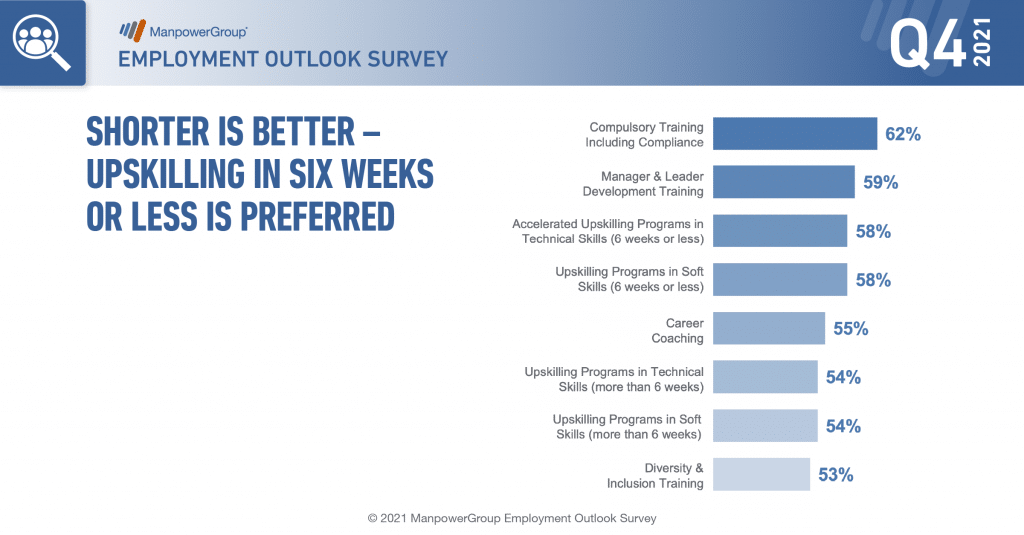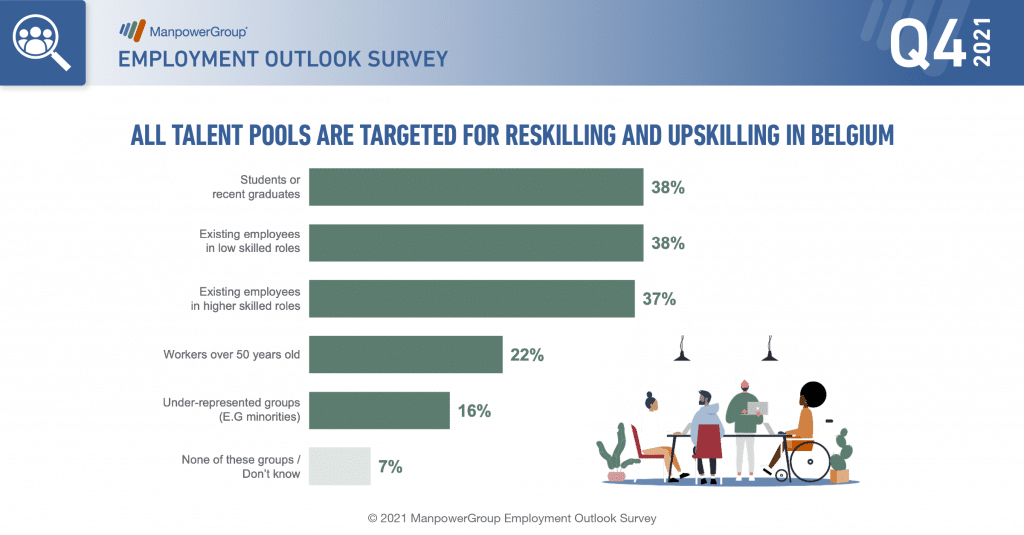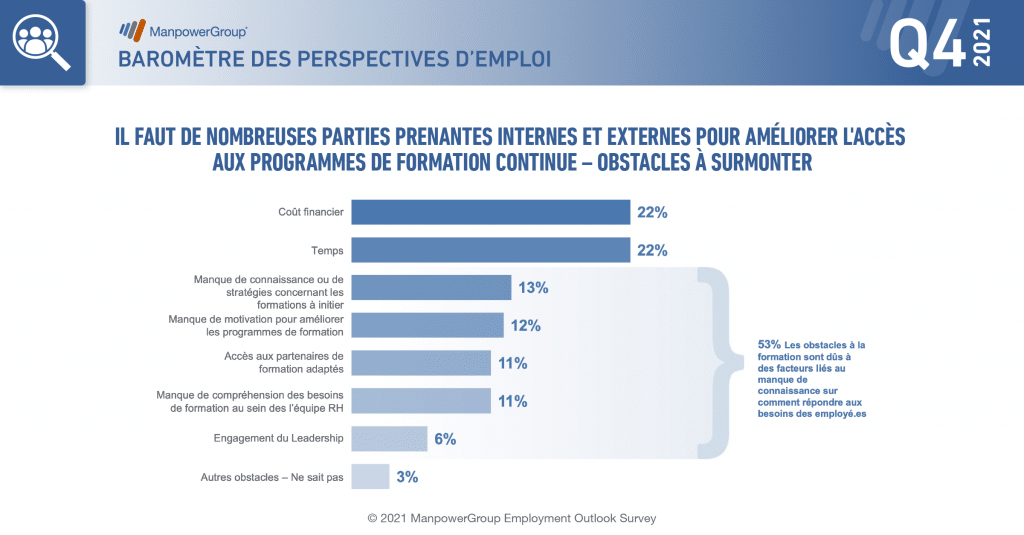37% of Belgian companies invest in training to overcome talent shortages

Optimism returns to the labour market: one in two Belgian employers plans to strengthen its workforce by the end of the year
14 September 2021
With its new MyPath programme, Manpower focuses on skills development
26 October 2021As the economic recovery gathers pace, the lack of skilled workers is a major concern for employers in Belgium and around the world. According to the latest ManpowerGroup Employment Outlook Survey, 77% of Belgian employers are struggling to fill vacancies due to labour shortages. The human resources specialist surveyed 552 companies and found that 37% of them are investing in training to overcome this issue.
A wide range of training courses
As well as compulsory training driven by regulations and implemented by 62% of companies, 59% of Belgian employers ready to invest in training, prioritise the development of management and leadership skills. According to Philippe Lacroix, Managing Director of ManpowerGroup, “the way teams need to be managed has changed significantly during the Covid crisis with the explosion of teleworking and hybrid working. Faced with more complex needs – particularly in terms of health and well-being – managers need to show more empathy and offer solutions suited to each individual case. “
To address the need to improve hard and soft skills, 58% of employers are choosing to offer shorter training modules that can be completed in less than six weeks. 55% of companies offer career coaching, while 53% train their staff in diversity and inclusion issues.

All Talent Pools are targeted for reskilling and upskilling programs
The ManpowerGroup survey shows that all talent pools should be involved in reskilling or upskilling, whether they are young graduates (38%), low skilled staff (38% ), highly qualified staff (37%) or workers over 50 years old (22%).

Cost is not the only barrier to introducing training programmes
Faced with the challenges of continuous training, financial cost (22%) and lack of time (22%) are the two main obstacles to training. But there is more: one in two companies struggles to implement a suitable training strategy involving all stakeholders. This may be due to difficulty finding the right training partners (11%) or a lack of understanding of their own needs (11%).
“In a world that is changing ever more rapidly, becoming automated, digitalized and virtual, skills are under more pressure than ever and threatened with obsolescence. So, after ‘Jobs, Jobs, Jobs’, ‘Training, Training, Training’ is becoming the new mantra on the job market,” adds Philippe Lacroix.
Download the report






